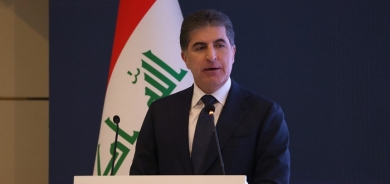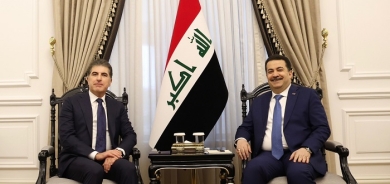Kurdistan Region Makes Significant Progress in Unifying Peshmerga Forces

Erbil, Kurdistan Region - In a major development, the military adviser to the President of the Kurdistan Region, Babikir Zebari, announced on Tuesday that significant progress has been made in unifying the Peshmerga forces, with plans underway to create two additional divisions.
According to Zebari, a former Chief of Staff of the Iraqi army, the unification process is proceeding smoothly, with no major obstacles reported. "The work of unifying the Peshmerga forces is going very well and without any obstacles," Zebari told the official website of the Kurdistan Democratic Party (KDP). "We are currently forming two divisions, with a third division in its final stages in Duhok province."
The newly formed divisions will consist of four brigades each, with each brigade comprising three regiments, and each regiment containing four battalions. The goal is to form a total of 11 divisions over a period of two to three years. Zebari emphasized that the Kurdistan Regional Government is taking a meticulous approach to ensure that the unification process is done correctly and without any gaps or issues.
The development comes as part of a broader effort to strengthen the Peshmerga forces and improve security in the region. The unification process is seen as a key step towards creating a more organized and effective army, capable of tackling the challenges posed by terrorist groups such as the Islamic State (IS).
Separately, Abdulkhaliq Talaat, the Kurdistan Region representative in the Iraqi Joint Operations Command, announced on Monday that two joint brigades of Peshmerga and Iraqi army forces will soon be established to address security gaps in disputed territories vulnerable to IS militants.
Talaat highlighted the need for joint brigades to secure areas where IS exploits security vacuums. "The Iraqi military forces have recognized their inability to control these territories without Peshmerga assistance," he said. "The joint brigades will be composed of one brigade from the Kurdistan Region and another from the Iraqi federal government, and will control a 542-kilometer stretch from Khanaqin to Sehela near the Syrian border."
The initiative is part of a 2021 agreement between the Iraqi federal government and the Kurdistan Regional Government to counter the IS threat in disputed areas. Talaat noted that all preparations for the brigades have been completed, but there have been delays from the federal government. "We hope the security gap will be filled soon, as controlling the extensive area is very challenging," he said.
The formation of these joint brigades marks a critical step towards stabilizing and securing regions previously affected by IS incursions. The development also underscores the importance of cooperation between Kurdish and Iraqi forces in tackling regional security challenges.
The unification of Peshmerga forces and the establishment of joint brigades are seen as key steps towards creating a more secure and stable environment in the region. The developments are likely to have far-reaching implications for regional security and stability, and will be closely watched by international partners and stakeholders.
The Peshmerga forces have been a key component of regional security efforts in recent years, playing a critical role in combating IS militants and other terrorist groups. The unification of Peshmerga forces is seen as a key step towards creating a more effective and efficient army, capable of tackling emerging security challenges.
The establishment of joint brigades between Peshmerga and Iraqi army forces is part of a broader effort to strengthen regional security cooperation. The development comes as part of a broader effort to strengthen regional security cooperation and improve coordination between Kurdish and Iraqi forces.
In conclusion, the developments announced by Zebari and Talaat mark significant progress in unifying Peshmerga forces and strengthening regional security cooperation. The establishment of joint brigades between Peshmerga and Iraqi army forces is a critical step towards stabilizing and securing regions previously affected by IS incursions. The developments are likely to have far-reaching implications for regional security and stability, and will be closely watched by international partners and stakeholders.












